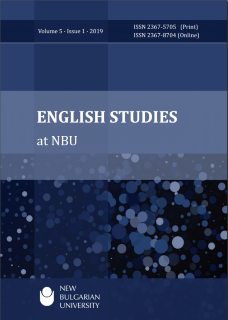Looking for heteroglossia and chronotope in New York and London: Pasino and Loncraine's adaptations of "Richard III"
Looking for heteroglossia and chronotope in New York and London: Pasino and Loncraine's adaptations of "Richard III"
Author(s): Mohammad Reza Hassanzadeh JavanianSubject(s): Social Sciences, Language studies, Language and Literature Studies, Education, Foreign languages learning, Theoretical Linguistics, Studies of Literature, Historical Linguistics, Higher Education , Philology, Translation Studies, Theory of Literature
Published by: Нов български университет
Keywords: Dialogism; Heteroglossia; Chronotope; Adaptation studies; Mikhail Bakhtin; William Shakespeare
Summary/Abstract: The relationship between a cinematic adaptation and its literary source has sparked scholarly debates in the field of adaptation studies. Developed by the Russian literary critic, Mikhail Bakhtin (1895-1975), dialogism can shed new light on the adaptation-source tie as it highlights the mutual interaction between the two sides. The present study argues that Al Pacino and Richard Loncraine’s versions of William Shakespeare’s Richard III (1593) stress such a dialogic aspect of the adaptation process. Within this dialogic framework, Pacino’s Looking for Richard (1996) establishes a heteroglossial relation with the play as it seeks to eliminate the gap between Shakespeare and the movie’s modern viewers. Loncraine’s Richard III (1995), however, is marked by a significant chronotopic strategy which situates Richard in new social and political contexts through a change in the play’s temporal and spatial elements.
Journal: English Studies at NBU
- Issue Year: 5/2019
- Issue No: 1
- Page Range: 59-76
- Page Count: 17
- Language: English

